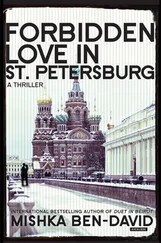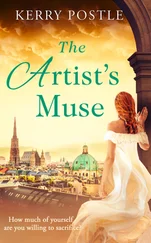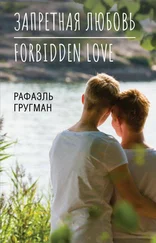Maria must want them too, surely, Paloma thought to herself. ‘That girl has no sense of family!’ ‘She’s always been such a selfish girl!’ Her mother’s unfair criticisms of her friend ricocheted around the confines of Paloma’s own mind. Maria was an only child. She had no mother. Cecilia always used one or other fact as an accusation whenever Maria did anything she didn’t agree with. Although she did not like the damning place that her mother’s reasoning led her to, Paloma found her own thoughts heading in the same direction today. She knew better than to articulate them. Instead, she would enter into the spirit of the discussion.
‘If you don’t want to get married, or have children, then what does it mean to be a girl?’ Paloma wriggled with what she told herself was justifiable indignation as she asked Maria the question. Maria gnawed on her thumbnail. She hadn’t expected rebellion. ‘What indeed!’ she said, dodging the bullet. She sat back and looked up at the infinite blue of the sky yet again. ‘All I know,’ she replied at last, ‘is that I don’t want to tie myself to any man.’ She stood up and brushed the earth from her clothes. And with that she drew the game to a close.
But Paloma hadn’t finished.
‘I don’t believe you!’ she retorted, still indignant. ‘You’re in love with Ricar.’
‘Oh, don’t be so silly!’ said Maria. ‘And if you’re talking about Richard, it has a ch and a d in it. And it would help if you could learn how to pronounce his name. Properly. In English.’ And with that she walked away and headed back to the village.
‘What’s love got to do with it anyway?’ she called back over her shoulder.
The villagers had never seen such a strange looking boy as Richard Johnson. They called him el inglés (among an interesting array of other, more colourful names – all of them unflattering). He was impossible to miss. His colouring was what had distinguished him most from everyone else when he’d first arrived; so white that small children would run to their parents, cries of fantasma trailing behind them. And now, six months on, the reaction he elicited was scarcely any better. Oh, what they called him was different. But their alarm was just the same. Once other-worldly white, now vibrant, throbbing pink; the ghost had been well and truly turned into the gamba, with dark orange freckles seared on burnt crustacean skin, cooking away as he was under the hot flames of the Spanish sun. Ghost or prawn, either way the English boy stood out.
But why had he come to their small village to live under a sun that seemed not to like him in the first place?
What he and his parents told people was that he was in Spain to immerse himself in the language and culture. The eighteen-year-old Richard Johnson had a place to study Modern Languages at Exeter College, Oxford, starting in October 1936, and it was true that he needed to prepare himself for the rigours of academic life, as well as to hear and speak the words he’d spent so many hours thus far only reading and writing in a cold classroom.
But the real reason, the reason that eclipsed all others in his mother Margaret’s mind, was her son’s health. That he was of a delicate constitution was plain to see and his doctor had thought it might do him some good to experience warmer climes. The poor boy suffered from two afflictions. The first was psoriasis for which there was no cure. Other than the sun. At home, where it was chilly, damp and grey, Richard struggled with the condition. It irritated him and distressed his mother. A constant reminder of the genetic legacy she had bequeathed to her only son, handed on down from her father and his father before him. A long illustrious line. The affliction had skipped a generation with her; a blessing which she would have gladly foregone if it had meant not affecting her precious child. Instead, she endured her son’s absence, consoled by the knowledge that the sun would help him.
That his skin wasn’t robust enough to withstand the raw rays of the Andalucian sun for long was a detail that no one had factored in.
As for the second ‘affliction’, it was in some ways more and in some ways less grave than the first. It was also another reason for Margaret to want her son as far away from England, and away from his father and his paternal grandparents, as possible. You see, Richard Johnson had been staring into space. And he’d been staring into space for years while sitting at the back of the classroom of his very expensive, fee-paying school where teachers were employed on the basis of personal academic achievement rather than any particular ability to teach, let alone care about the young faceless charges before them. Not one of them had noticed the red-headed boy with the vacant expression at the back of the class.
It was his grandfather who’d spotted it. One Christmas he’d asked Richard to pass the gravy. He loved gravy. Liked to drench Margaret’s over-boiled sprouts in the stuff. When the damned fool of a boy didn’t answer on the third time of asking, his grandfather knew: the boy was having a mild epileptic episode. ‘Just like my old brother Vernon,’ he’d said. He was promptly taken to see the family doctor who confirmed it. Poor Richard. Another genetic legacy, this time bequeathed (his mother was relieved to say) from his father’s line.
His grandfather demanded that the boy be operated upon. From that day forward Margaret’s mind was made up. Her son had to go to Spain. As far as she could see, if Richard’s condition displayed itself as a little staring into the sunset every now and again, she was convinced that it could do him no harm. And it was infinitely better than submitting him to unnecessary surgery or endless discussions about its possibility.
And so, even with political changes afoot in Spain – news of it was beginning to make it into the nether regions of the press – both Margaret and Peter Johnson were convinced their son would be better off there until the family had stopped picking over the bones of Richard’s epilepsy. And considering they hadn’t noticed it for eighteen years there was a high probability that once out of sight, the vulture known as Family Concern would alight on the carcass of another victim soon enough.
And that was how, with a letter here and a telegram there, Richard Johnson had ended up in the care of a doctor in a village in Spain in the spring of 1936 where he would stay until the start of his first term at Oxford. And where he would become the most unlikely of heart throbs.
Maria hadn’t realised she was restless before the strange vision that was Richard Johnson came to Fuentes.
She did now.
She longed for his visits to her home, reliving them as she went off to sleep. She knew that even Paloma laughed at the look of him when she was at home with her sister; but he, in all his otherness, showed Maria that a big, beautiful world existed out there. And this sign of otherness that leaked out of him she took for his soul, his appearance, like blotting paper, changed by it forever.
That her father should be the person who brought this exotic being to their quiet village did not surprise her. She only had memories of living in Fuentes. Her father had always been its doctor, stitching wounds, administering medicines, making up poultices, visiting the old, the sick and the injured, as well as disappearing on visits that he chose not to explain to her. It was his life. But every few months he would receive a letter that connected him to a time before, to a life spent far away. Then he would hide himself away in his study and look through the album he kept in a drawer in his desk. The people who inhabited the photographs would leave the page and he would let them dance round and round in his mind. And for a few moments he would lose himself.
Читать дальше












